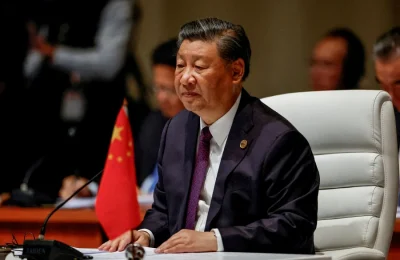The world is facing a dual biodiversity and climate crisis. Yet, without a focused attention to equity, there are risks for harmful or maladaptive actions that will impact human health and well-being and exacerbate the vulnerability of marginalised populations. This, in turn, will undermine joint policy goals for climate, conservation and sustainable development.
A group of researchers and practitioners stated this in a new study published in ‘Nature Ecology & Evolution’ on Tuesday.

There are two major global agreements that are redefining how governments, civil society and the private sector are moving forward together to reduce global emissions to stabilise the Earth’s climate system, stem the biodiversity loss crisis, and concurrently protect the health of our planet and its inhabitants.
The first is the legally binding Paris Agreement, in which countries agreed to take actions that will hold “the increase in global average temperatures to well below 2°C above pre-industrial levels” by 2030, while supporting efforts to adapt to the significant climate impacts already experienced across the planet.
The second is the the Kunming-Montréal Global Biodiversity Framework, where countries also agreed “to take urgent action and reverse biodiversity loss to put nature on a path to recovery for the benefit of people and planet,” including through protection of 30 percent of the global oceans by 2030.
The study notes that the world is at a crossroads and races to design and implement ocean actions to reach these ambitious yet necessary targets, yet a failure to fully consider who bears the costs of these actions and who receives the benefits could result in the further displacement and marginalisation of the most vulnerable. While local grassroots movements are growing in response to long histories of social injustice, the voices of marginalised actors bearing the cost inequitable ocean governance are still being drowned out by powerful economic and political interests that dominate decision-making processes about how ocean space and resources are used.

Dr Joachim Claudet, Senior Research and Ocean Advisor for the French National Centre for Scientific Research (CNRS) and lead author, stresses that, “We urgently need a transformative change towards ocean sustainability. Such a change can only occur if we rally ocean actors towards more inclusive and equitable forms of sustainable development, climate change adaptation and conservation. In our paper, we propose key leverage points with actionable options for decision-makers to advance ocean equity.”
These actions include things like recognising and ensuring meaningful participation of the full range of affected groups in ocean governance.
For example, this could involve inviting representatives of Indigenous Peoples and small-scale fishers organisations to planning and policy meetings and ensuring not just that their voices are heard, but also that their concerns are addressed.
Influential ocean actors such as governments, donors, big non-governmental organisations (NGOs) and corporations should work toward mainstreaming equity within their own internal governance processes, while asking themselves tough questions about how design and implementation of their actions could be more inclusive and result in more equitable outcomes.
“Hundreds of millions of people worldwide live near and depend on the ocean. So, it only makes sense that their voices and needs are considered in decisions related to the ocean that will affect their lives. This includes in the development of the blue economy, creation of marine protected areas, and implementation of climate actions. In short, equity must be at the center of ocean governance,” said Dr Nathan Bennett, Global Oceans Lead Scientist for WWF, Chair of the People and the Ocean Specialist Group for IUCN, and co-author.
Read Also: Only telcos, banks, NSE, internet service providers affected by Cybersecurity levy — Reps







